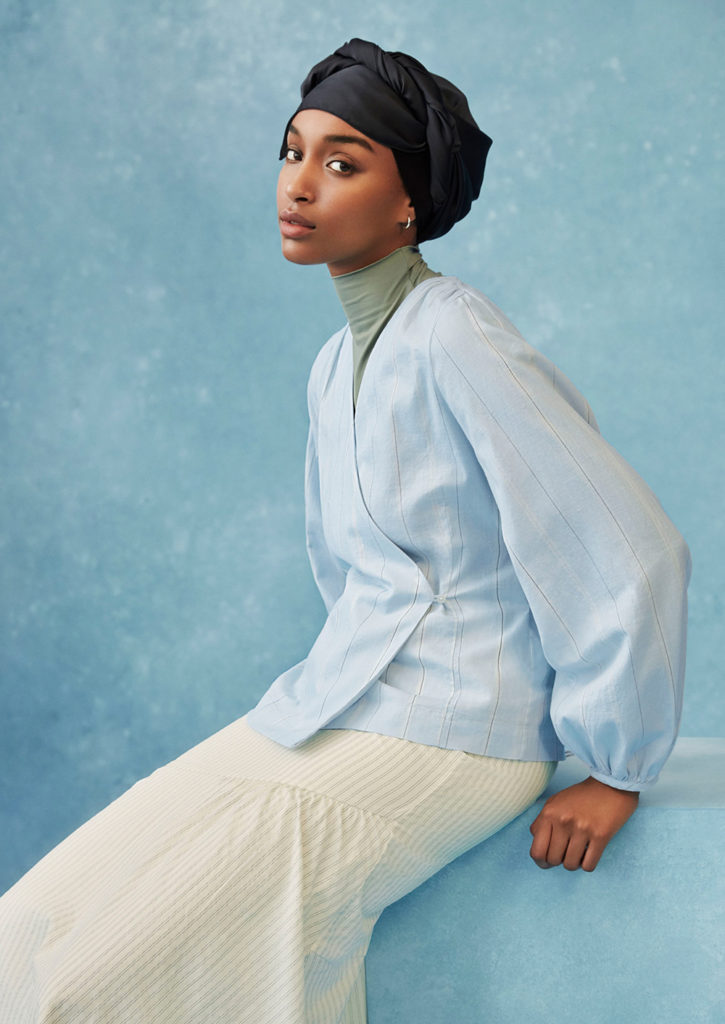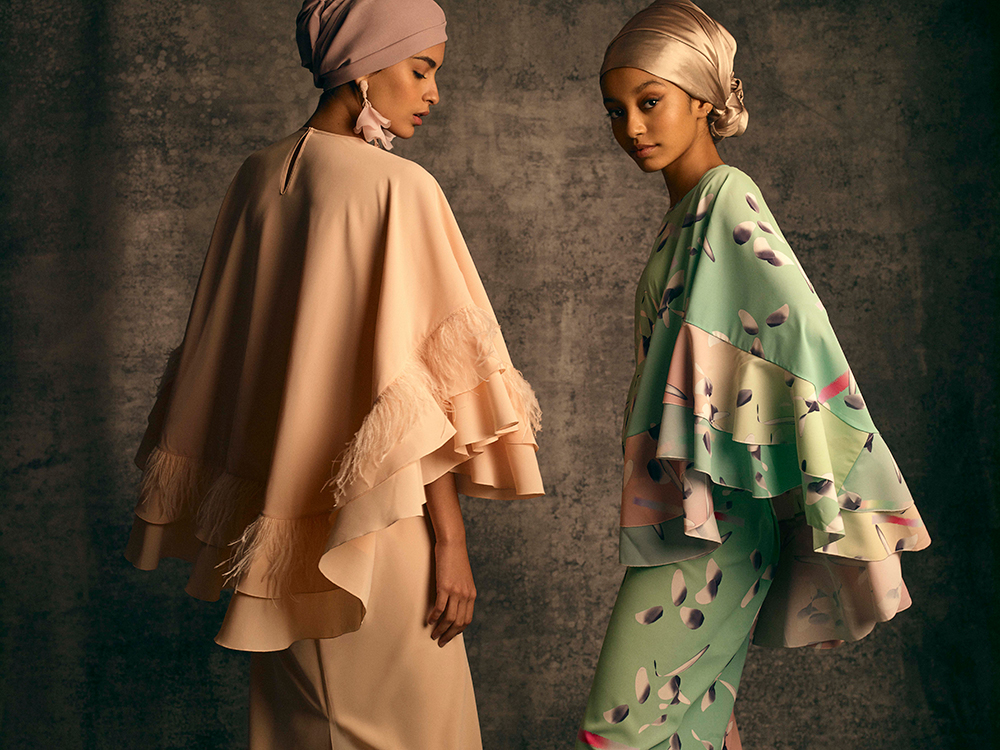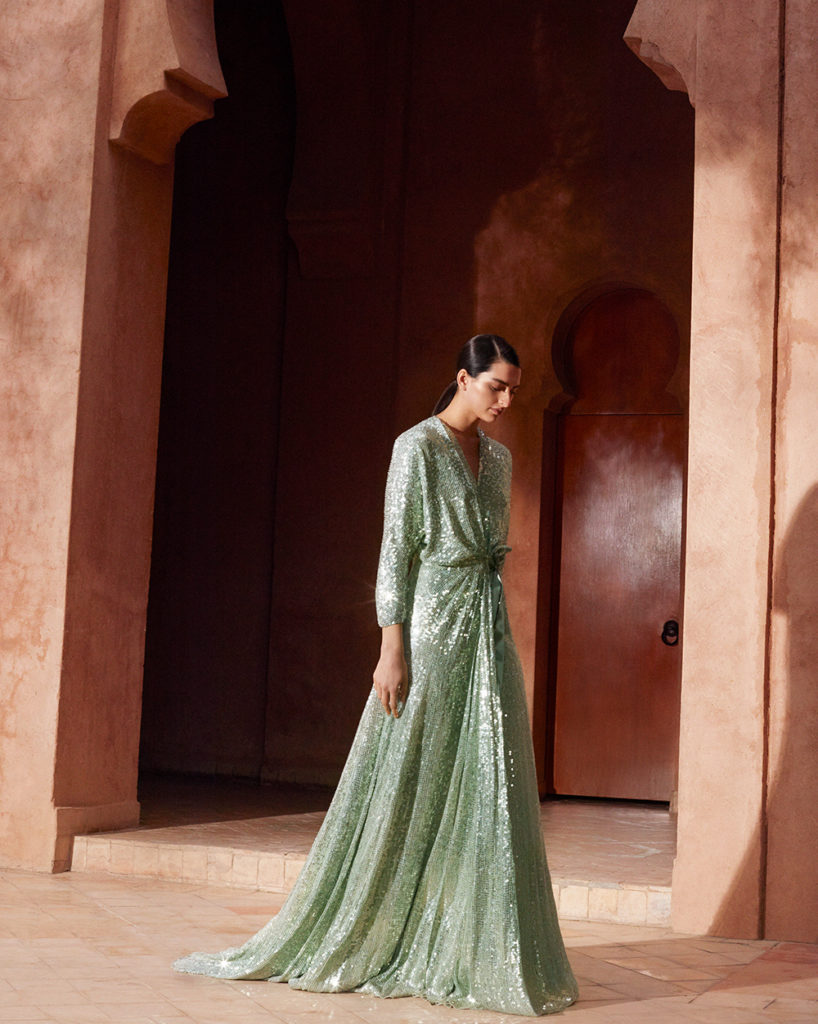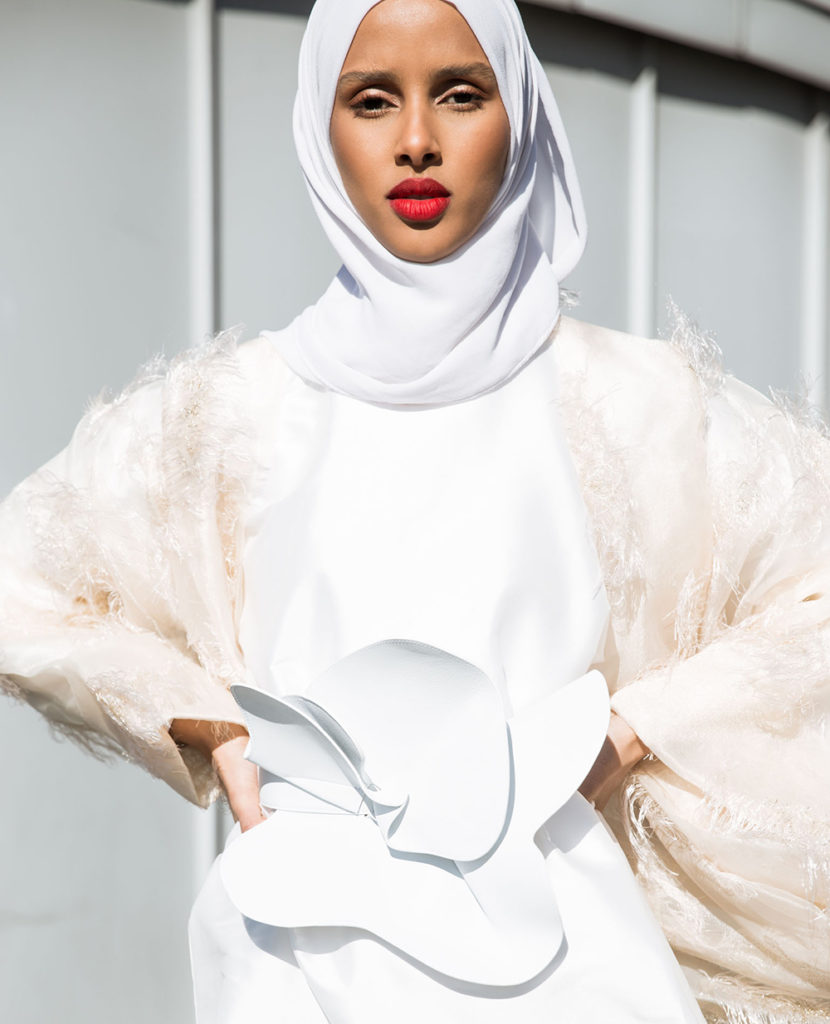In an era of increasing demand for cultural diversity and respect, and with fashion often reflecting societal conversations, one special sartorial niche has been growing at a skyrocketing pace.

Born of religious reasons, modest fashion—a once desperately underserved market centred around covered-up silhouettes—has matured into a multi-billion-dollar industry in recent years, highlighting just how much this demographic is looking to be catered to.
And while Muslim women continue to take the driving seat in shaping this market for hijabs, oversized shapes, ankle-length hemlines, and long sleeves, more and more consumers (regardless of faith) are growing interested in the art of understated style, as well as the deeper meaning to creative layering.
“Modesty covers such a wide spectrum, ranging from women who choose to dress modestly for religious reasons, to women who prefer the fashion aesthetic or favour feeling more age- or office-appropriate in demure silhouettes,” says Sally Matthews, the creative director of Dubai-based digital boutique The Modist.

Founded in 2017, the e-commerce site, which stocks a plethora of leading contemporary labels like Stella Jean, Christopher Kane, and Ellery, offers hyper-curated luxury options for the dresser who simply chooses to do without skin-baring designs. “Our approach to addressing modesty is in a non-denominational way, meaning that women from different faiths, backgrounds, ages, and sizes have been able to become part of a community,” adds Suzanna Cadbury, The Modist’s buying director.
It’s that inclusive lens—highlighted through the company’s diverse choice of international models, celebrities, activists, and influencers for its eye-catching editorials and campaigns—that has propelled The Modist into the role of top style destination for women who prefer to be understated. “The common thread which unites our women at The Modist is their love of great fashion and being able to find coverage without having to compromise on style, and being empowered by their choice,” says Matthews.

That powerful—and incredibly chic—“why” behind a woman’s decision to be more covered up has entered mainstream consciousness around the world. “The interest in special pieces specifically for Ramadan, alongside modest fashion in general, has increased significantly over the past few years, and not only in the Middle East but globally,” says Elizabeth von der Goltz, the global buying director for well-known e-commerce platform Net-A-Porter.
Many of today’s most popular luxury brands have taken serious notice. “Trends have shifted to more sophisticated, covered options. A great example of this is how Valentino has been using high necks and long sleeves in a stylish, feminine way,” the head buyer points out.
A wide cross-section of Net-A-Porter’s modesty-savvy consumers may shop primarily for religious values (the London-based e-tailer recently worked with a handful of big-name luxury brands such as Oscar de la Renta, Carolina Herrera, and Reem Acra on 17 exclusive capsules leading up to this year’s holy month of Ramadan), but von der Goltz also describes the company’s understated dresser as your everyday working woman. “[She] wants to feel more refined and covered-up for the office and work events. It is also the customer who attends specific events on a regular basis, such as weddings, black-tie events, and charity functions, and who requires a level of sophistication.”
The movement toward more subtle femininity has gained serious momentum this side of the border as well. “Our customer is always in search of the most well-made products in the market—the modest dresser is no different,” voices Joseph Tang, fashion director at Canada’s homegrown luxury retailer Holt Renfrew. “We continually have requests for more modest fashions, especially within dresses. Fashion-forward cocktail dresses with sleeves continue to be a big call out from our customers.”

And it’s not just the luxury world feeling the pull. Japanese high-street retailer UNIQLO is already in its seventh season of collaboration with British-Japanese Muslim designer Hana Tajima. “The collection includes hijabs but does not necessarily target Muslim women. [It’s] inspired by a global movement to embrace diverse cultures and styles,” says Tajima of her current Spring/ Summer capsule collection.
The reasons for buying modest fashion may vary greatly among the interested consumers out there, but one common and welcomed theme is definitely clear: “Today, women are given options to dress in a way that feels true to their own personalities,” says Tang. “And that’s an empowering option to have.”

